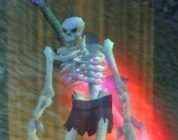Like many, I had to remove myself from The Walking Dead’s viewership around the time Negan took his bat to the heads of two long-running characters whose identities and deaths had been relentlessly teased by producers all through the sixth series, and even slightly into the seventh. What had been increasingly obvious for a long time became unignorable: this was a show that had long ago abandoned any thematic interests or narrative purpose in favour of simply devising worse and worse ways for people to die. I almost came back to watch Carl’s death in season eight because, man, I hated that child, but that felt like it would lose me a lot of moral high ground, so I had to settle for merely knowing it was at last done.
The spin-offs began in 2015 with Fear the Walking Dead (which soon got chaotically boring, too). Many others, including anthology series and ones that focus on specific characters, have followed but none has quite caught fire. A lot of hopes have been pinned on the reanimating force of Andrew Lincoln (who starred as the franchise hero Rick Grimes until the ninth series of the original’s eleven) and Danai Gurira (as Michonne, the nonpareil of apocalyptic warriors and the love of Rick’s life) who combine to form the nucleus of The Walking Dead: The Ones Who Live.
The series begins five years after Rick was supposedly killed but secretly rescued-cum-kidnapped by the Civic Republic Military (CRM) and covers (in slightly confusing flashback for anyone who dropped out early) what he has been up to since then. Mainly, it seems, trying to escape and get back to Michonne, chopping off his own hand and cauterising it in burning zombie innards in the process, all to no avail.
He is protected by and inveigled into joining the CRM by Lieutenant Colonel Okafor (Craig Tate), who wants to change the army from within by recruiting the kind of freethinking, independent types that it currently tries to keep out. On a disastrous mission, and after a lot of laborious unsent letters to Michonne are read to us in gravelly voiceovers, who does Rick run into but … Michonne!
The next episode fills in her backstory for the last five years and – be warned – even introduces, albeit temporarily, a certain lightness of spirit via new character Nat (Matthew August Jeffers). There is even a joke in episode three.
Other than that, though, it seems to be very much business as usual. Walkers are stabbed in the face, found waterlogged but alive in swamps, and gather in hordes to bugger up everyone’s plans. Rick is tormented. Michonne katanas. We meet communities of survivors with their own arcane rules that surely resemble nothing that would be found in post-apocalyptic nature because they simply don’t make sense. Obstacles are carefully placed in people’s way – only for them to get round them. Sometimes they discover hordes of walkers waiting there and really regret it; sometimes they are free to go on their way until they wind up at the mercy of yet another scary community.
The latest spin-off’s success will depend entirely on how truly invested the fandom is in Rick and Michonne’s relationship. Nothing new is being offered, in fact the new iteration seems to have gone to some trouble to keep the kind of overarching storylines and not quite credible threats to the couple’s existence and happiness that weighed down earlier attempts. And it still doesn’t let Rick have a shower when he returns from his outings covered in undead blood, even though he’s now in a very high-functioning city environment and these things must be available.
But at least there’s no Carl. I will watch to the end just for that.
after newsletter promotion



![‘State of Decay 3’ Returns With a New Trailer [Watch] – Bloody Disgusting](https://zombiegaming.org/wp-content/uploads/2024/06/stateofdecay3-178x140.jpg)

